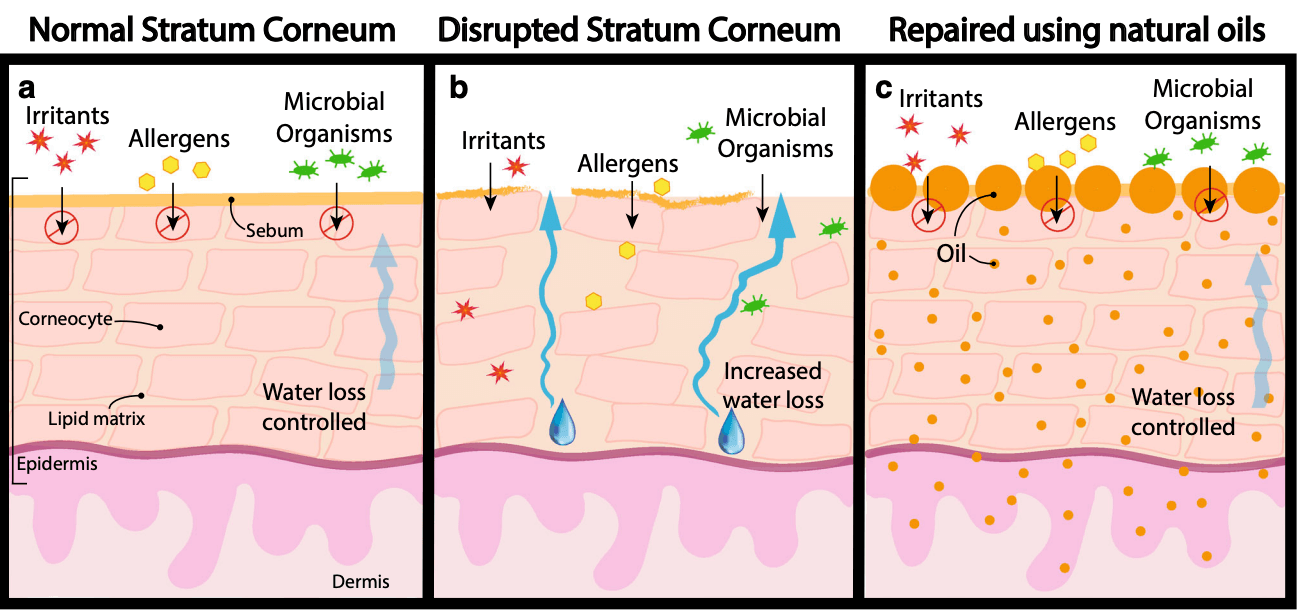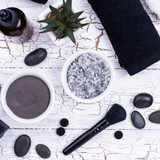Is Sunflower Oil Safe to Use on Skin?
Is Sunflower Oil Safe to Use on Skin?
The word about "seed oils" is getting out. There's a lot of talk about the potential for industrially-processed vegetable oils to be rancid and to be inflammatory in our diets. The research is controversial and still developing, but I think it's safe to say, if you start avoiding industrially-fried foods and oil-heavy baked goods (think cakes and muffins), you're likely to see improvements in your health.
I've been asked a lot lately about our use of sunflower oil in our products. Is sunflower oil inflammatory when applied to skin? Our skin is, after all, our largest organ.
First of all, I want to address the sunflower oil that we use in our products. We use USDA certified organic sunflower oil. Much of the objection to industrial "seed" oils is to the fact that they're highly processed. We choose organic sunflower oil which is expeller-pressed and not processed with hexane, bleach, or other chemicals. While sunflower oil gets grouped in with the “seed oils” and while non-organic, non-high-oleic sunflower oil might not be the best to include in your diet in high amounts, you'd be missing out on a lot of benefits if you avoid sunflower oil in your skincare products.
Sunflower oil helps repair the lipid barrier on skin
Sunflower oil has been studied several times on infants and pre-term infants for its protective effect on this delicate skin. Sunflower oil helped reduce dermatitis in preterm infants while protecting from infections. It has been show to repair the acid mantle and lipid barrier. It has been shown to perform better than conventional baby (petroleum) oil as well as olive oil. [1][2]
Sunflower oil has also been found to help reduce transepidermal water loss (TEWL) and protect against irritants, allergens, and pathogens. It has been found to can improve skin-barrier function by activating peroxisome proliferator-activated receptor-alpha (PPAR-a), which regulates keratinocyte proliferation and accelerates skin barrier repair. [3]

High in Vitamin E
Sunflower oil is high in vitamin E, an antioxidant compound. One tablespoon of sunflower oil provides 66% of your RDA of vitamin E. [4]
Sunflower oil has long been found to be anti-inflammatory when used topically.
Sunflower oil contains a compound called sesamol, which has been found to have chemopreventive effects. Cold-pressed organic oil would contain higher amounts of sesamol than a chemically-processed and refined oil. [5][6]
Better for skin than olive oil
One study found that sunflower oil did a better job at repairing skin irritation in infants than olive oil did. The infants actually experienced skin irritation with olive oil. [7]
I actually experienced this myself last year when my baby was teething. His cheeks were quite irritated from rubbing and saliva. I was making a balm with cocoa butter, beeswax, and sunflower oil that kept it in check. I ran out of sunflower oil at home and used olive oil instead, thinking maybe it would work better or just as well. I was wrong! His skin became more inflamed and irritated and I had to switch back to sunflower oil. It appears that linoleic acid is more beneficial to skin than many other fatty acids. [8]
Low Allergen Risk
Sunflower oil is also fairly "hypoallergenic" in that true sunflower allergies are quite rare. [9]
Sunburn?
And no, using sunflower oil on your skin won't make you sunburn. (The claim that avoiding dietary seed oils will keep you from getting sunburned is not firmly rooted in science.) ? In fact, sunflower oil has slight spf properties of its own and can be a helpful after-sun moisturizer due to its vitamin E content. [10]
So is sunflower oil safe to use on skin? Absolutely.
Recent Posts
-
Is Charcoal Safe in Deodorant?
Activated charcoal has become a popular natural ingredient in toothpaste, deodorant, soaps, facial c …5th Mar 2024 -
Is Stevia an Endocrine Disruptor?
Is Stevia an Endocrine Disruptor?Stevia rebaudiana, an herb native to Paraguay and Brazil, contains …9th Feb 2024 -
Is Aloe Vera Toxic?
Containing more than 200 different chemical compounds, aloe vera plants and extracts have long been …9th Feb 2024

